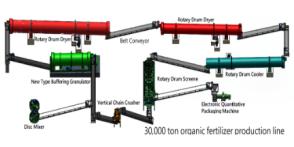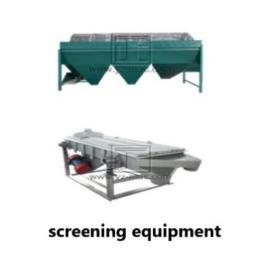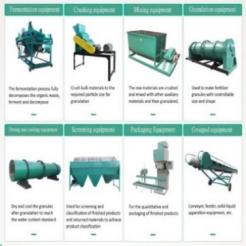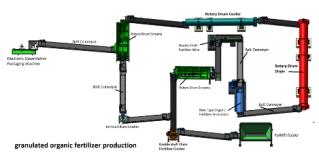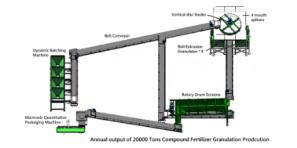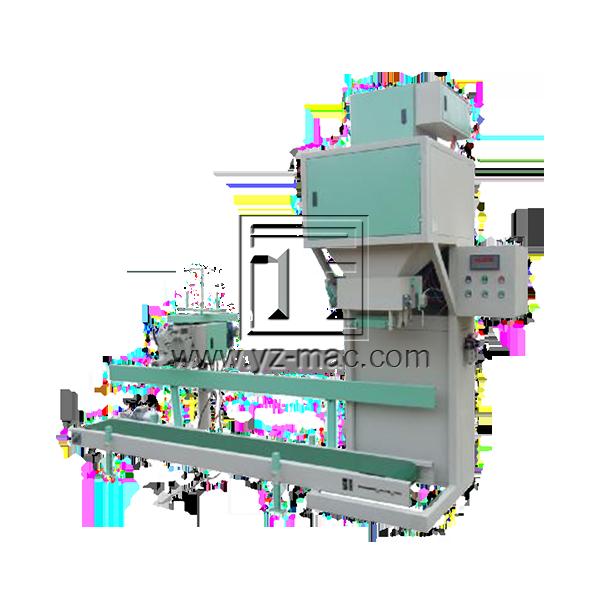Organic fertilizer production equipment with an annual output of 30,000 tons
Organic fertilizer production equipment with an annual output of 30,000 tons typically consists of a larger set of equipment compared to the one for 20,000 tons annual output. The basic equipment that may be included in this set are:
1.Composting Equipment: This equipment is used to ferment organic materials and convert them into high-quality organic fertilizers. Composting equipment can include a compost turner, a crushing machine, and a mixing machine.
2.Fermentation Equipment: This equipment is used to create optimal conditions for the microorganisms to break down the organic materials in the compost. Fermentation equipment can include a fermentation tank or a bio-reactor.
3.Crushing and Mixing Equipment: This equipment is used to break down the raw materials and mix them together to create a balanced fertilizer mixture. It can include a crusher, a mixer, and a conveyor.
4.Granulation Equipment: This equipment is used to convert the mixed materials into granules. It can include an extruder, a granulator, or a disc pelletizer.
5.Drying Equipment: This equipment is used to dry the organic fertilizer granules to a moisture content suitable for storage and transportation. Drying equipment can include a rotary dryer or a fluid bed dryer.
6.Cooling Equipment: This equipment is used to cool the dried organic fertilizer granules and make them ready for packaging. Cooling equipment can include a rotary cooler or a counterflow cooler.
7.Screening Equipment: This equipment is used to screen and grade the organic fertilizer granules according to particle size. Screening equipment can include a vibrating screen or a rotary screener.
8.Coating Equipment: This equipment is used to coat the organic fertilizer granules with a thin layer of protective material, which can help to prevent moisture loss and improve nutrient absorption. Coating equipment can include a rotary coating machine or a drum coating machine.
9.Packaging Equipment: This equipment is used to pack the organic fertilizer granules into bags or other containers. Packaging equipment can include a bagging machine or a bulk packing machine.
Other Supporting Equipment: Depending on the specific production process, other supporting equipment may be required, such as conveyors, elevators, and dust collectors.
It is important to note that the specific equipment needed may vary depending on the type of organic fertilizer being produced, as well as the specific requirements of the production process. Additionally, automation and customization of the equipment may also impact the final list of required equipment.


